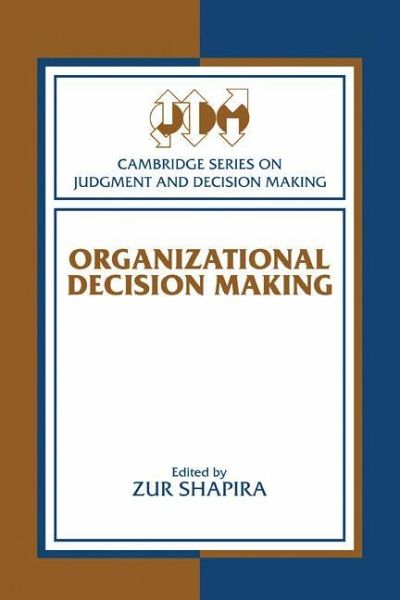
Organizational Decision Making

PAYBACK Punkte
31 °P sammeln!
Explores decision making in organizations, highlighting the roles of incentive, conflict, power and politics.


Rechnungen
Bestellstatus
Retourenschein
Storno